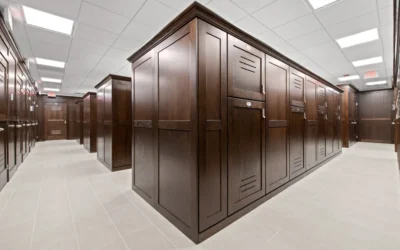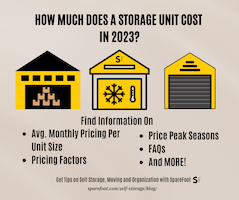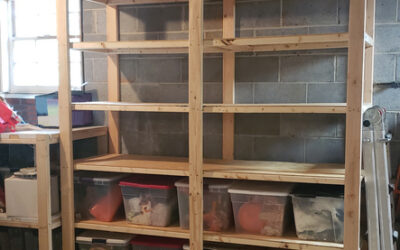Over the past decade, Sean Delaney has scored plenty of sales recognition awards on the way to his current job as vice president of investments at real estate brokerage firm Marcus & Millichap.
Delaney, a director in Marcus & Millichap’s National Self-Storage Group in Oak Brook, IL, has closed real estate transactions valued at more than $150 million during his real estate career.
But self-storage wasn’t Delaney’s first calling. From 1992 to 1996, he played Single-A and Double-A minor-league baseball as a catcher with the Kansas City Royals organization. In 1997, he spent five months with the independent Saint Paul Saints.
The SpareFoot Storage Beat talked with Delaney about how he moved from the baseball diamond to the brokerage field, and about his view of today’s self-storage market.
If you’re not coming into the office every day, ready to go and hungry and ready to compete for your next deal, you’re going to end up going by the wayside.
— Sean Delaney, vice president of investments at Marcus & Millichap
How did you transition from a career in professional baseball to self-storage brokerage?
When I finished playing professional baseball in 1997, I opened up and ran an indoor baseball training facility, America’s Pastime. I did that for about a year, then bopped around with a couple of sales jobs and ended up going to work for a small boutique real estate firm in Naperville, IL, for about a year.
After a few months of researching the O’Hare industrial market [in Chicago], one of the senior agents in the office suggested that I take a look at self-storage. After a little research and a few conversations, I was committed to self-storage.
What drew you to Marcus & Millichap?
The gentleman who I worked for in Naperville suggested I call Marcus & Millichap because they provide the best training in the industry.
Any similarities between baseball and self-storage brokerage?
When you’re playing baseball, if you stop working on your skill set, somebody’s going to come up behind you and take your job. On the brokerage side, you’re always competing against other brokers, just trying to master and get better at your craft. There are always other brokers out there looking to get the same deals that I’m going after. If you’re not coming into the office every day, ready to go and hungry and ready to compete for your next deal, you’re going to end up going by the wayside.
Any practices from your baseball career that have carried over to brokerage?
There are so many facets to real estate brokerage, from sales skills to making cold calls, conducting meetings with clients and putting presentations together, the marketing of the property and managing the escrow process to get the properties closed. So the mindset of always working on different skills in baseball certainly transcended over to the brokerage side, where you always have to be refining and working on your skill set.
What self-storage markets are hot right now?
Chicago is certainly a sought-after market. When a property does come on the market in Chicago, it attracts attention nationally. The markets in Texas are hot because of the demographics with new construction, population growth and job formation. There are also transactions happening in the Southeast.
The [self-storage] asset class as a whole is just performing really well, and I think the capital is willing to go where the deals are.
— Sean Delaney, vice president of investments at Marcus & Millichap
How does competition among investors affect the storage market?
With more of the larger operators or private equity [investors] that are having trouble or can’t buy properties in a major market because they’re competing with real estate investment trusts, we’re going to continue to see that equity flow into larger secondary markets. With the equity that’s getting beat out by the larger guys that are filtering down into larger, secondary markets, the guys that are losing on those deals will start looking into the smaller secondary markets.
How willing are self-storage investors to branch out into markets outside of their own region?
There are some groups that have specific geographies where they want to buy, and they won’t veer from those. But then there are groups that will go anywhere in the country. The asset class as a whole is just performing really well, and I think the capital is willing to go where the deals are.
How’s the self-storage real estate market looking in the near future for investors and self-storage owners thinking about sell properties?
Now is as good a time as any that I can remember in the last 10 years to exit the property, maximize value and be able to extract that equity, and either cash out of the property or exchange it into another asset.
Why is now a good time?
Maybe the most important component of why to exit now is the debt. Debt is cheap today, so if you’re a seller, it has all the makings for maximizing the value of a property. When you look at operations being very strong, a limited amount of inventory, a substantial amount of equity, potential buyers that are looking to buy storage deals and then the debt markets, it’s kind of a perfect storm if you’re a seller.








